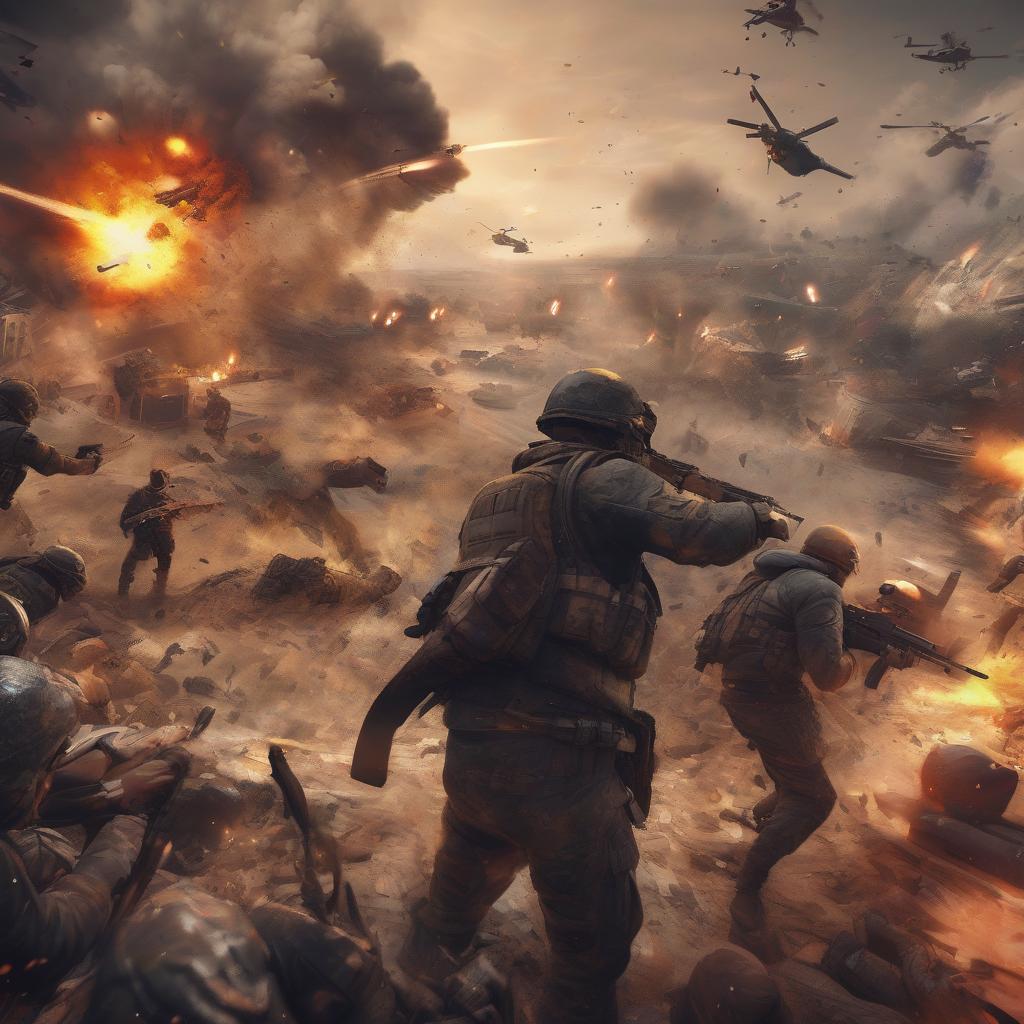Ever found yourself deep in a virtual battlefield, heart racing with each click? That, my friend, is the intense world of FPS games. FPS, which stands for First-Person Shooter, is a popular game genre where you see the action from the protagonist’s eyes, navigating through levels, shooting enemies, and often working as part of a team. It’s a genre that’s exploded over the years, captivating players with its immersive experience and fast-paced gameplay.
What Makes FPS Games So Captivating?
It’s not just the thrill of the game. There’s something almost addictive about the way these games are structured. The adrenaline rush, the strategic gameplay, and yes, the camaraderie you share with teammates if you’re into multiplayer. These games aren’t just about shooting; they’re about tactics, precision, and often, teamwork.
The Evolution of FPS Games
FPS games have come a long way since their inception. Remember when Wolfenstein 3D first hit the scene in 1992? It was groundbreaking at the time, and since then, the genre has evolved dramatically. The graphics, the storyline, the mechanics—everything has been elevated to a level that keeps us all wanting more.
- 1992: Wolfenstein 3D – Often considered the grandfather of FPS games.
- 1993: Doom – Brought a whole new level of graphics and gameplay.
- 2001: Halo – Revolutionized multiplayer and introduced a rich sci-fi narrative.
- 2007: Call of Duty 4: Modern Warfare – Brought cinematic storytelling to FPS games.
And now? We have games like Call of Duty: Warzone and Battlefield 2042 pushing the envelope even further, integrating battle royale elements and massive online multiplayer experiences.
Gameplay Mechanics and Features
So, what exactly sets FPS games apart from other game genres? It’s the perspective and the mechanics. In an FPS, you’re in the thick of the action, viewing the battlefield through the eyes of your character. This perspective isn’t just immersive; it’s a game-changer. It influences everything from the way you aim to the way you navigate the game world.
- Realtime Strategy: Thinking on your feet is crucial.
- Precision Aiming: It’s not just point and shoot; it’s about hitting the target accurately.
- Team Coordination: Especially in multiplayer modes, working with your team can spell the difference between victory and defeat.
The popularity of FPS games has also led to the development of specialized gaming accessories like ergonomic mice, mechanical keyboards, and even gaming headsets tailored to enhance the player’s experience.
Impact of FPS Games on Culture and Technology
These games have done more than entertain us—they’ve shaped culture. From catchphrases that enter everyday language to the rise of eSports, FPS games have left their mark. According to a BBC report, even the tech behind these games has influenced advancements in other fields, like virtual reality and military training simulations.
The Rise of eSports
FPS games have been at the forefront of eSports, where players compete for glory and serious cash prizes. Titles like Counter-Strike: Global Offensive and Overwatch have massive followings and professional leagues. It’s not just a hobby—it’s a career for some, complete with sponsors and global competitions.
Technological Advancements Driven by FPS
Game developers are always pushing the boundaries, driving technology to new heights. Be it advanced graphics rendering, realistic physics engines, or even AI development, FPS games demand a level of tech that often leads to breakthroughs applicable beyond gaming.
FPS: A Look at the Community and Modding
One of the most vibrant aspects of FPS games is their communities. These aren’t just players; they’re creators. Modding communities form around games, creating new maps, skins, and sometimes entirely new gameplay experiences. This fan-driven content keeps games alive long after their initial release.
Modding: Breathing New Life into Old Games
Take a look at games like Half-Life or Quake. The modding communities for these games have been active for years, continually breathing new life into them. Mods can range from simple aesthetic changes to complete overhauls, showcasing the creativity and dedication of the gaming community.
Online Forums and Communities
Whether it’s a subreddit dedicated to a specific game or a Discord server where players gather to strategize and socialize, the communities that form around FPS games are incredibly passionate. It’s here that players share tips, organize tournaments, and sometimes, just talk about their favorite loadouts.
Challenges and Criticisms Facing FPS Games
But it’s not all fun and games. FPS games have faced their share of criticism. Concerns about violence, addiction, and the impact on young players are frequent topics of discussion. Some argue that these games desensitize players to violence, while others worry about the long-term effects of prolonged play.
Violence and Its Impact
This is probably the most significant criticism faced by FPS games. The argument goes that constant exposure to virtual violence could lead to increased aggression in real life. While studies have yet to provide a definitive answer, this is a debate that continues to rage on.
Addiction and Time Management
Like with any form of entertainment, there’s the potential for addiction. FPS games, with their engaging gameplay and competitive nature, can sometimes lead players to spend more time than is healthy. It’s important for players to strike a balance and ensure that gaming doesn’t interfere with their responsibilities.
All that said, FPS games remain a staple in the gaming world, providing millions with hours of entertainment and a sense of community. Whether you’re diving into the latest release or revisiting an old favorite, there’s something uniquely satisfying about these games.
FAQs: Let’s Chat About FPS
- Q: Why do people think FPS games are addictive?
A: They’re designed to be engaging. The fast pace, rewards, and competition can make it hard to put the controller down.
- Q: What’s the best FPS game for beginners?
A: Try something like Overwatch. It’s forgiving for new players and offers a variety of roles to suit different playstyles.
- Q: Are FPS games OK for kids?
A: Some are, but it’s crucial to check the game’s rating and content. Some are definitely more mature than others.
- Q: Why do FPS games often have such huge communities?
A: It’s the social aspect. Games like these encourage teamwork and competition, leading players to form tight-knit communities.
- Q: Do FPS games offer any educational value?
A: Surprisingly, yes. They can enhance hand-eye coordination, strategy skills, and even historical knowledge, depending on the game.
So, whether you’re a seasoned veteran or a newcomer to the world of FPS, there’s always something fresh to explore. Keep playing, keep learning, and most importantly, have fun out there!

